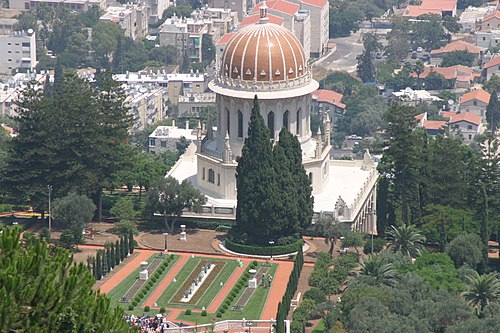
July 9, 1850, is a significant date in the history of Bábism and the Bahá'í Faith. On this day, Siyyid `Alí Muhammad Shírází, known as the Báb, the founder of Bábism, was executed in Tabriz, Persia (modern-day Iran).
Historical Context
Bábism is a religious movement that emerged in the mid-19th century during a period of profound social and political change in Persia. Siyyid `Alí Muhammad Shírází, born in 1819 in Shiraz, proclaimed himself the Báb in 1844, meaning "the Gate," announcing the imminent arrival of a prophet greater than himself who would renew and unify religions.
The Báb's message, advocating social and religious reforms, quickly attracted a significant following, known as the Bábís. However, his teachings were perceived as a threat by the dominant Shia clergy and the Qajar government, leading to violent repression of his followers.
Arrest and Trial
Due to the growing popularity of Bábism and the disturbances it caused, the Báb was arrested multiple times by Persian authorities. In 1848, he was imprisoned in the fortress of Maku, then transferred to the fortress of Chihriq. Despite his imprisonment, his influence continued to grow, further alarming the authorities.
In 1850, the Persian Prime Minister, Amir Kabir, ordered the execution of the Báb to put an end to the spread of Bábism. The Báb was transferred to Tabriz to be tried by a religious tribunal, which sentenced him to death for heresy and sedition.
Execution
On July 9, 1850, the Báb was brought to a public square in Tabriz, accompanied by one of his young disciples, Anís. According to historical accounts, the Báb and Anís were suspended by ropes before a firing squad of 750 Armenian soldiers.
A persistent legend holds that after the first volley of shots, the Báb was found alive and unharmed, his bonds having been mysteriously cut. He was reportedly found back in his cell, necessitating a second execution. This time, both men were killed, and their bodies were dumped in a ditch outside the city.
Consequences
The execution of the Báb did not end the Bábí movement. On the contrary, it further inflamed his followers and paved the way for the emergence of the Bahá'í Faith. Bahá'u'lláh, one of the Báb's foremost disciples, declared himself in 1863 to be the prophet foretold by the Báb, thereby founding the Bahá'í Faith, which continues to flourish to this day.
The martyrdom of the Báb is commemorated annually by Bahá'ís worldwide, who regard him as a sacrificial figure and a precursor to their faith.
Nadavspi~commonswiki, CC BY-SA 1.0, https://fr.wikipedia.org/wiki/B%C4%81b_(chef_religieux)#/media/Fichier:Haifa-Bahai.jpg


0 comments: